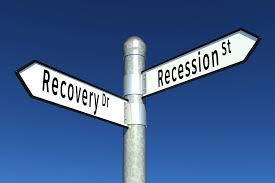Each month I attend the Southwest Florida Real Estate Investment Association meetings which focus on the state of the market and highlight unique ways to invest in real estate or to discuss topics that are important to investors. This month’s meeting focused on recapping where we are today compared to past cycles. The only major debt level to have not surpassed the last bubble is the amount of residential debt. Dodd-Frank has helped keep the debt levels low for U.S. Residential real estate and actually led to a more stable real estate market. One of the caveats to this post is that real estate markets are local and what may be true at a macro level may not be true in individual markets. Use your common sense when applying this to your specific market.
One specific aspect I have been pondering is that historically real estate and stocks have not followed the same cycle. 2008 was a major recession that was akin to the great depression of the 1930s and resulted in most major asset classes tumbling down. In past recessions and corrections, real estate and stocks have not followed the same cycles meaning that when one goes down they both don’t go down. Each serves as a way to diversify from the other and as a result, they have had a more inversed (opposite) relationship with one another. Many in the financial sector agree that stock prices are quite high and it is difficult to justify the values for which they are trading at. Goldman Sachs just announced its first quarterly loss in 6 years and the majority of the missing revenue is from the lack of trading in the stock market (according to Marketplace from NPR). The slow down of trading is an interesting phenomenon and may highlight where the next correction may occur.

If you look at cycles almost everything was undervalued in 2008-2010 (besides gold and commodities like oil) and determining what will not be affected by the next market correction is difficult for me to understand. I am bullish on the long-term effects of cash flow real estate investing and thus believe there is an opportunity to continue to grow in that area. Commodities such as oil and gold may provide opportunities to hedge your money against inflation. Cryptocurrencies provide a black swan opportunity to investors who are willing to take risks. Since the U.S. tax bill passed in 2017 it seems as if more fuel has been thrown on the current bull market and it will provide for continued expansion in the short to medium term (I am far from a psychic or Nostradamus). The fact that companies will be able to repatriate cash from overseas to the U.S. at a lower tax rate and the lowering of the corporate tax rate, it will provide additional fuel to the stock market and economy in the short term. We’ve already seen examples of this with AT&T announcing bonuses (great timing with their proposed acquisition of Time Warner and waiting for regulatory approval) and Apple announcing it will bring a large chunk of cash back to the US from overseas.
All in all, I believe the US economy is chugging along and is healthier than I would have guessed back in early 2016. I do believe a market correction is around the corner but what I struggle with understanding is what assets will be most affected and what will this correction look like. At the REIA meeting what stuck out to me is that in the Southwest Florida Real Estate Market there is little room for a correction. There is large number of cash buyers in the market, little residential debt, and the prices are not exorbitantly higher than 2006/2007 levels. It leads one to assume that residential real estate will likely be stable even when a correction occurs if the current fundamentals in our market do not change. Where there is more concern is in the commercial real estate sector which has much higher debt levels and investors have been paying for low rates of return (the percentage of the money they get in return for their investment) due in part to the low-interest rates in our current market. If we experience a black swan type of event we will have a correction and that the timing seems more appropriate for that to occur. Regardless I believe there will be a correction in the future but I am unable to determine when that will occur. Thus in the interim, I will continue to look for investments based on the criteria I value which is cash flow and dividends.

[…] Market Correction […]
[…] Market Correction […]
Comments are closed.